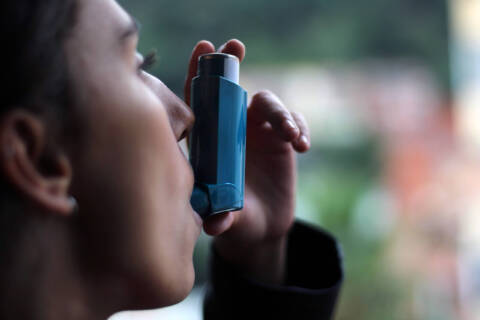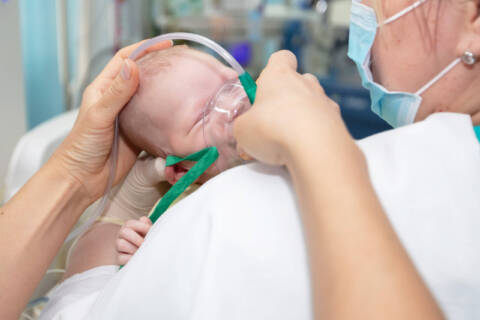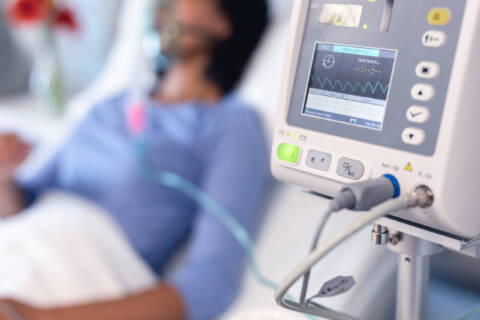Respiratory Therapists Educate Patients
Properly using breathing equipment is not always straightforward. Patients can make mistakes, like not timing their breaths with the device’s actualization, forgetting to test spray before use, holding their device incorrectly or neglecting to clean it afterward. There are also many were using their inhaler improperly. Patients may also not adhere to their pulmonary medication regimen, which can hinder their treatment’s efficacy. Inadequate inhaler techniques can lead to symptom flare-ups and complications – especially for . As patients’ primary educators in respiratory matters, respiratory therapists (RTs) are essential to ensure correct, independent inhaler usage. are handheld, pressurized aerosol canisters that propel short puffs of medication. Examples of MDIs include Albuterol and Fluticasone/Salmeterol. To use correctly, you need to shake the inhaler, test spray the canister and exhale fully before using. Inhale the medication slowly and hold your breath for five to ten seconds before exhaling. Each puff is one dose – if you need another dose, wait at least one minute prior to reuse. Holding your breath and taking adequate breaks between dosages are crucial to ensure the medication reaches your lungs. If a patient forgets to hold their breath or takes doses in rapid succession, not only could they reduce the medication’s efficacy, but they could develop a drug resistance or potentially risk an overdose in extreme scenarios. are a novel innovation in the realm of inhaled drug therapy that’s primarily recommended for patients who have difficulty using MDIs. Instead of a brief burst through a propellant, this inhaler delivers the medication in a slow-moving soft mist to allow for slower inhalation. Other than having a longer medication inhalation period, using an SMI is essentially identical to an MDI. Nebulizers convert liquid medication into a fine mist for inhalation. Nebulizers shouldn’t be mistaken for an SMI. Although both convert medication into a mist, SMIs are portable handheld devices, while nebulizers are electric or battery-powered machines that dispense medication through a mask or mouthpiece over a prolonged period of five to 20 minutes. DPIs (such as Advair Diskus and Spiriva HandiHaler) are tube or disk-shaped, handheld devices that dispense medication in a powdered form. They aren’t activated through a machine or a propellant. Instead, patients take a deep breath before forcefully inhaling, pulling the powder out of the container and into their lungs and holding their breath for several seconds. Holding DPIs correctly is key to effective usage. Patients need to hold their DPI upright and level with the mouthpiece at the bottom, keeping a tight seal with their lips while inhaling. By utilizing hands-on training with role-play and visual aids (e.g., videos, brochures, smartphone apps), as well as scheduling follow-up appointments to guarantee continued adherence, respiratory therapists maximize inhaler’s therapeutic effects with notable success. In one study, educational measures led to of asthma patients improving their inhaler techniques. Unfortunately, many nurses don’t have the knowledge or skills to adequately teach patients. One study showed that, although of participating nurses felt confident about their ability to educate, most demonstrated poor teaching abilities – especially with newer devices like SMIs. At St. Louis College of Health Careers, we thoroughly equip students with the knowledge and skills needed to excel in all aspects of their healthcare career – including educating patients. Our experienced faculty will prepare you to give patients the in-depth guidance they need to achieve sufficient breathing support. Our comprehensive respiratory therapy bachelor’s program gives students access to a variety of learning methods, including fully online program options, allowing them to build their skills and advance their careers while working. Learn more about our or start your application by calling 866-529-2070 today.









